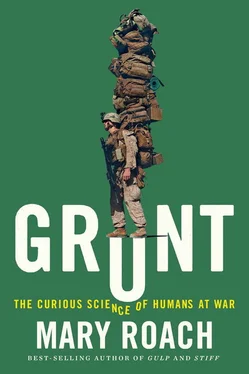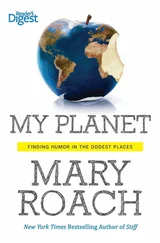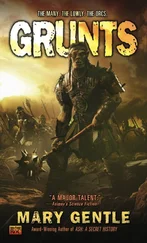Like drunks, the chronically sleep-deprived are doubly dangerous in that they’re poor judges of their own impairment. Jeff Dyche, a sometime research psychologist at NSMRL, now with James Madison University, told me about a study that showed that people who’d slept six hours a night for two weeks were as cognitively diminished as people who’d been up for forty-eight hours straight. Unlike the up-all-nighters, routine six-hours-a-nighters see no need for caution. They’ve felt mildly exhausted for so long it’s become their normal, Dyche says. “They’re like, ‘Ah, I’m used to it.’” I’ve been hearing a lot of this over the past two days. “I get four and a half hours and I’m generally okay for a twenty-four-hour period,” said a sailor pushing trash into an institutional-grade compactor that would work with equal efficiency on flesh and phalanges.
Murray and the sub’s commanding officer, Chris Bohner, volunteered to try out a new watch schedule aimed at keeping crew better rested, both for their health—insufficient sleep having lately been linked to obesity, high blood pressure, diabetes, heart disease—and for everyone’s safety. It is not a simple undertaking. “I spend a very significant amount of time,” Murray says, “figuring out people’s rest.” Murray is a popular leader—in both manner and mien, a solid individual. You never see him slouch or lean or jut one hip. He stands steady and square on both feet, like a bag of mortar set down. His hands park on his belt, with an occasional sweep over his head, which he keeps closely shaved. The latitude of Murray’s hairline, like that of the submarine itself, will remain a secret to me.
The problem is that things come up. People fall behind and schedules fall apart. The problem this week is me. Everyone’s work was interrupted because the crew had to spend four or five hours looking for a spot where the seas were calm enough to drop a gangplank between the sub and the vessel we sailed out on.
Part of the Navy’s challenge in dealing with undersleeping has been that somewhere along the line, it became a point of pride. At NSMRL I met a longtime submarine commanding officer named Ray Woolrich. “Marines sitting around in a bar,” said Ray, “will tell you how many push-ups they can do. Aviators will tell you how many g’s they can take. Submariners will tell you how many hours they stayed up.” Better to be exhausted than to gain a reputation as a “rack hound.” [56] In military slang, there’s a friendly epithet for everyone. I, for example, am a “media puke.”
For decades, military sleep research proceeded in lockstep, focusing less on getting sleep than on getting by without it. Study after study tested this or that stimulant on fliers, soldiers, sailors. Only recently has protecting sleep become a Defense Department priority. Current Army policy requires unit leaders to develop and implement a sleep management plan in theater. (Though in one small survey of soldiers returning from Iraq or Afghanistan, 80 percent had never been briefed on such a thing.) A turning point, according to Belenky, was the lengthening of the Army’s field training exercises (FTXs), the massive simulated confrontations that serve as a sort of practical final exam for soldiers. “At some point the doctrine folks had concluded that any war worth going to would probably last a week or two, so they increased the duration of the FTX from three days to two weeks,” Belenky said. Up to that point, there had been a tradition of staying up for all of it, in order to “look motivated and get a good evaluation.” Belenky recalls getting a call from a commander shortly after the change went through. “He said, ‘I need your advice on pharmacology. I need my boys to be able to stay up longer.’” Belenky figured the man was talking about a couple extra days. “I said, ‘How long do you want them to stay up?’ He said, ‘Two weeks.’ People actually tried to gut it out.” It was a vivid and no doubt fairly entertaining demonstration of the importance of sleep to military competence.
History provides equally vivid demonstrations. Medical historian Philip Mackowiak compared eyewitness and officers’ accounts of Stonewall Jackson’s performance during a series of Civil War battles with the general’s opportunities for sleep, if any, in the days leading up to those battles. In 100 percent of the battles for which Jackson had had no chance to sleep in the three days prior, his leadership was rated “poor.” In the Battle of Gaines’ Mill, his chief of staff described him as “thoroughly confused from first to last.” His brigades were not merely “out of order”; “he did not know where they were.” The Battle of Glendale found Jackson “benumbed, incapable… of deep thought or strenuous movement… uninterested and lethargic.” At times during the Battle of Malvern Hill, Jackson “appeared to be almost a bystander.” In the midst of the Battle of McDowell, he was discovered napping.
For every twenty-four hours awake, Belenky told me, people lose 25 percent of their capacity for useful mental work. Jackson was leading the charge (or not) on 25 percent of his waking best. I’m trying not to think about a man named Patterson in one of the Tennessee ’s machinery rooms. He’d been up for 22 hours trying to fix the electrolytic oxygen generator, a large, pulsing metal-hulled molecule splitter. “Basically it’s a hydrogen bomb,” he’d said cheerfully.
The longest Belenky has kept subjects awake is 85 hours—three-plus days—which is about the limit, he says. “They’re not,” he adds, “very useful to anybody.” There are people who claim to have stayed awake for 100 and even 200 hours, but because their brain waves weren’t continuously monitored, as Belenky’s subjects’ are, it’s impossible to be sure they weren’t microsleeping. The very tired can slip into Stage 1 sleep for a few moments, eyes open, carrying out some quasi-coherent version of whatever it is they’re up to. As anyone who has slept on an airplane knows, it’s possible to maintain muscle tone while sleeping—that is, until you slip into REM sleep, during which muscles relax. (When people fall sleep at odd times in their circadian cycle, they may enter REM early. Blame “early-onset REM” for the slack-jawed head-lolling that happens when you nap sitting up.)
Soldiers, including Stonewall Jackson’s, have on occasion reported sleeping during night marches. If you’re tired enough, Belenky says, your brain appears to briefly dissociate—one part sleeping, another awake. There are birds and marine mammals that manage this regularly. Dolphins and seals are able to sleep unihemispherically—with one half of their brain. This is because the other half needs to attend to breathing, which in their case requires swimming to the surface for air. When geese and ducks sleep in groups on the ground, the birds on the outer edge will keep one eye open and the corresponding brain hemisphere awake, scanning for predators.
From a military perspective, a soldier who could march or swim or look out for enemies while simultaneously catching up on sleep would be a desirable item. It fits right in with one of the goals of the military’s futuristically minded Defense Advanced Research Projects Agency (DARPA): “to enable soldiers to stay awake, alert, and effective for up to seven consecutive days without suffering any deleterious mental or physical effects and without using any of the current generation of stimulants.” This is why you’ll find the Defense Department on the sponsor lists of some of the basic research on unihemispheric sleep. If science could just figure out how the ducks do it, perhaps troops could be enabled—chemically or surgically, God only knows—to do it, too. Belenky scoffed. “We’re not even sure what triggers whole brain sleep.”
Читать дальше












